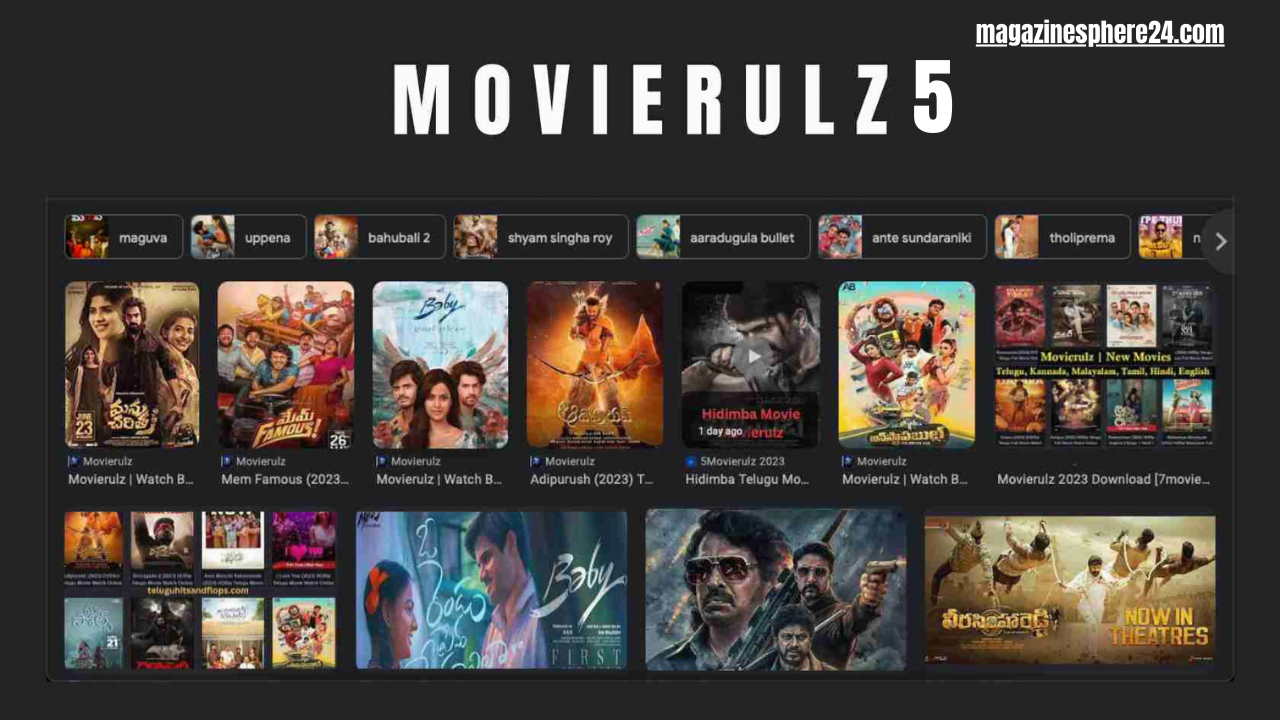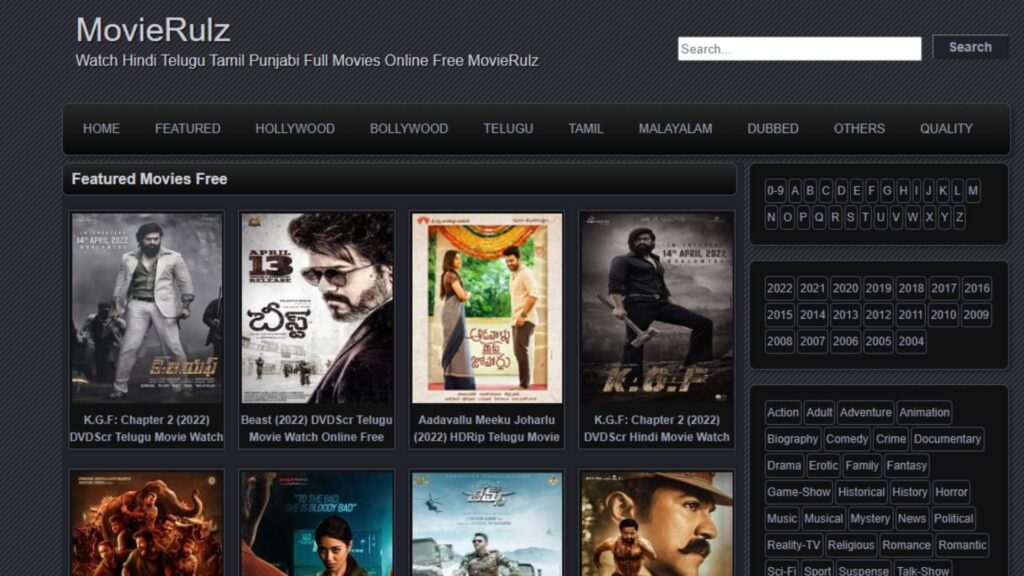Movierulz Alternatives: Where To Watch South Indian Movies
In a digital age overflowing with entertainment options, does the convenience of instant access truly outweigh the potential risks of online piracy? The proliferation of websites offering unauthorized access to copyrighted content, such as Movierulz, raises serious questions about the future of the film industry and the ethical considerations of media consumption.
The internet has revolutionized how we consume content, offering unparalleled access to movies, television shows, and other forms of entertainment. Platforms like Netflix, Amazon Prime Video, and Zee5 have become household names, providing legal and convenient avenues for streaming. However, the allure of free content often leads users to websites that operate in a legal grey area, such as Movierulz. This platform, and others like it, offer a vast library of films, including the latest releases from Bollywood, Tollywood, Hollywood, and various regional cinemas across India. They also provide access to popular web series, shows, and even Korean dramas (K-dramas), all accessible in high definition (HD) quality. Movierulz, which positions itself as a source for "2025 latest HD Telugu, Kannada, Tamil South Indian movies, web series, shows, and KDramas," capitalizes on the public's appetite for immediate and free entertainment.
The core issue revolves around copyright infringement. Websites like Movierulz enable users to watch or download movies without paying for the content. This practice directly violates the rights of filmmakers, producers, and distributors who invest heavily in creating and marketing their work. The financial repercussions of piracy are substantial, impacting the profitability of film projects and potentially discouraging investment in new content. Furthermore, accessing content through these platforms carries significant risks for the user. These sites are often riddled with malware, viruses, and intrusive advertisements that can compromise personal data and device security.
The availability of pirated content is not limited by geographical boundaries. Movierulz, for example, caters to a global audience, offering movies in multiple languages, including Hindi, English, Tamil, Telugu, Kannada, Marathi, and Punjabi, among others. This multilingual approach broadens the reach of pirated content and presents a challenge to legal streaming services that are competing with free, albeit illegal, alternatives. The site is designed to be easily accessible on various devices, optimized for smartphones, tablets, and PCs, thus ensuring a broad user base can access the content.
However, the legal landscape surrounding online piracy is complex and varies depending on jurisdiction. While the act of downloading or streaming copyrighted content is illegal in many countries, enforcement can be challenging. Many users are willing to take the risk, valuing the cost savings and ease of access over the legal ramifications. The websites, themselves, often employ tactics to evade legal action, such as operating from countries with weak copyright enforcement or frequently changing domain names to avoid being shut down.
The concept of "JustWatch" provides a useful tool in navigating the complex world of online entertainment. JustWatch is a platform that allows users to find where to stream their favorite movies and TV series legally. By specifying preferred streaming services, such as Netflix, Amazon Prime Video India, and Hotstar, users can quickly identify where specific content is available for streaming. It helps consumers make informed decisions about how they watch movies, promoting legal options.
The allure of these platforms also lies in their perceived comprehensiveness. Movierulz, for example, claims to offer an expansive collection of movies and TV series, providing users with a one-stop destination for all their entertainment needs. This includes not just the latest releases but also a wide selection of classic films and shows. This vast catalog is often updated to include the newest movies and the latest episodes of popular TV series. They also provide reviews of new Tollywood, Bollywood, and Hollywood releases, movie news, trailers, and TV news, offering a comprehensive service to their user base.
A case study would be "Jaabilamma neeku antha kopama," a movie whose review has been mentioned in the content provided. The appearance of this movie shows the broad scope of content available on these sites, covering various genres and production styles. The easy availability of such content, coupled with a lack of awareness or concern about copyright infringement, contributes to the continued existence and use of such sites.
Another aspect of the conversation is the role of streaming services like Zee5. These platforms offer legitimate ways to watch movies online anytime, anywhere. They provide an extensive collection of movies in HD quality, including Telugu films, thus presenting a legal alternative to piracy. By investing in original content and partnerships with film studios, they create a system that benefits content creators and consumers alike.
Additionally, the websites often offer movies in different audio options and with subtitles, for example, the ability to watch Tamil movies with Telugu audio, making them more accessible to a diverse audience.
The impact on the film industry extends beyond financial losses. Piracy can also affect the creative process. If filmmakers and studios are not adequately compensated for their work, they might become less willing to invest in ambitious or innovative projects. This can ultimately lead to a decline in the quality and diversity of content available to audiences. Furthermore, the widespread availability of pirated content devalues the work of everyone involved in the film, from actors and directors to technicians and crew members. The success of a film is intrinsically linked to its financial performance, which is damaged by piracy.
The situation is further complicated by the evolving nature of media consumption. The way people watch movies has changed drastically in the last decade, with streaming services gaining dominance. However, the infrastructure that supports these services varies depending on the region and is often less developed in certain parts of India. The availability of high-speed internet, subscription costs, and the availability of specific content can all contribute to the allure of piracy. Movierulz, and similar sites, exploit these vulnerabilities.
In conclusion, while websites like Movierulz provide seemingly easy and free access to entertainment, they pose a significant threat to the film industry and carry ethical and security risks for users. The choice between legal streaming services and illegal piracy sites is a fundamental one. It requires awareness of the legal and ethical implications of copyright infringement, as well as a consideration of the long-term impact on the creative industries. Furthermore, users should be aware of the security threats associated with accessing unauthorized content. The future of the film industry, and the availability of high-quality content, depends on making informed choices and choosing to support legal and legitimate sources of entertainment.



